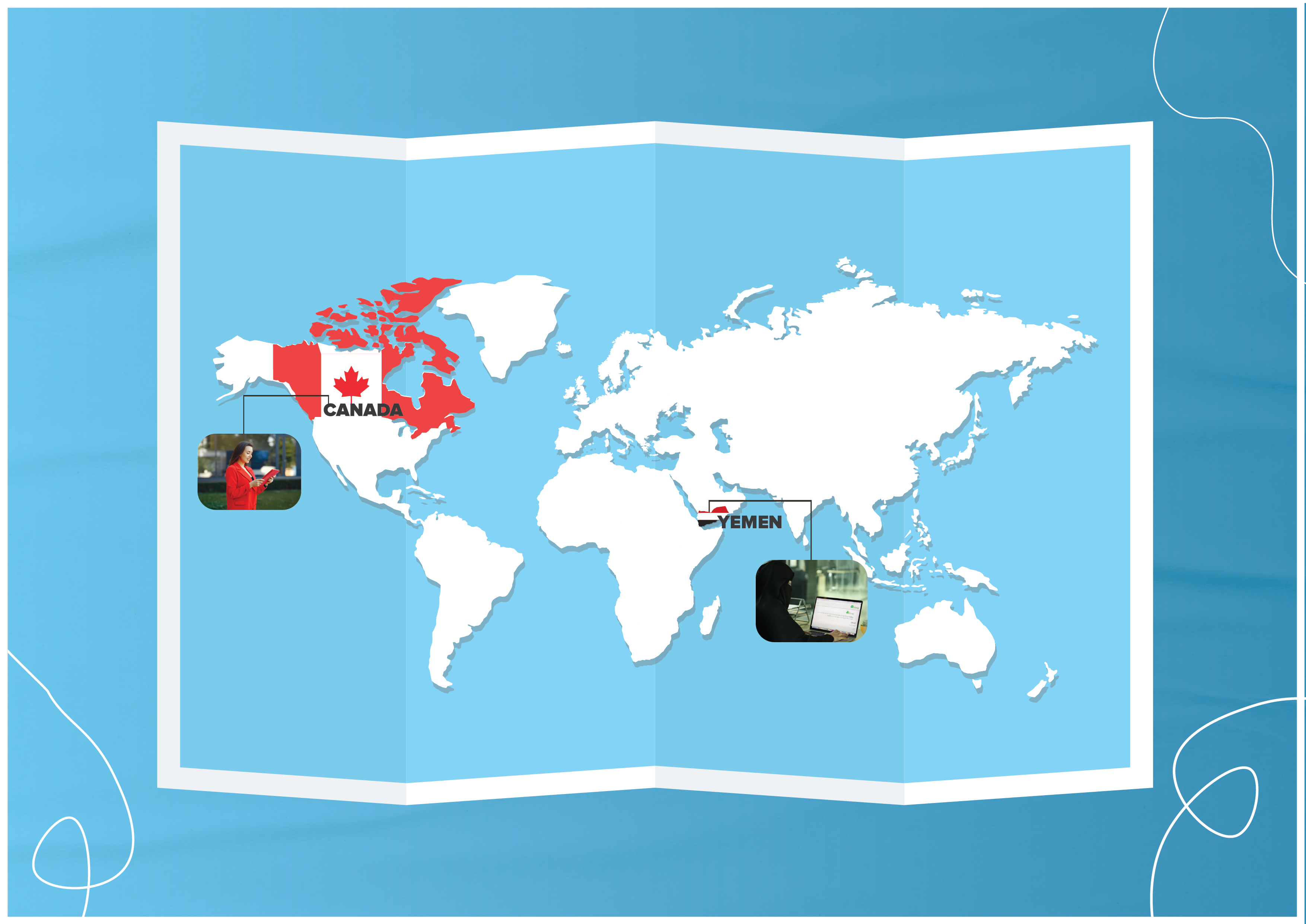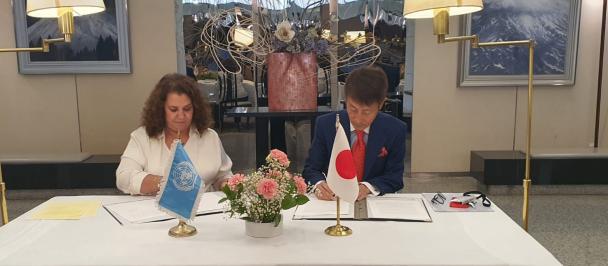Knowledge sharing workshop between UNDP, McGill University and Aden University
October 9, 2023

Women in Yemen play a fundamental role in peacebuilding, despite a challenging context that includes ongoing conflict. With the recent coronavirus pandemic and the transition to more widespread use of online communication platforms, the impact of technology on peacebuilding has increased.
On 29 May 2023, experts, scholars, and public servants with experience in Yemen working on peacebuilding came together in a knowledge exchange to discuss the impacts of technology and the coronavirus pandemic on the work of women peacebuilders in Yemen. During the online session, representatives from UNDP Yemen, Aden University’s Women’s Research and Training Centre Yemen, the Research Network on Women, Peace and Security, McGill University, and Peace Track Initiative and She4Society shared their experiences in advancing the Women, Peace and Security (WPS) agenda in Yemen. Participants discussed how to better protect vulnerable groups from any negative effects of technology through effective policy and collaboration. The need for an effective global online protection policy was emphasized, focusing on the various issues that women experience across regions, while remaining conscious of local nuances. Furthermore, the discussion identified gaps in existing literature and highlighted areas that require more research.
Participants discussed how the online arena has become an increasingly vulnerable place for women peacebuilders, which has been exacerbated by the coronavirus pandemic and the global shift to online modalities. Because of this, many women remove themselves from the online space if they have a negative experience, and then resume work when they believe it is safe. Alternatively, many opt to use tactics to hide their identity while persisting to operate in vulnerable online spaces.
However, the online space has also become a tool for women peacebuilders to communicate with each other and organize, which is why it is critical that platforms can provide safe spaces for women who are at increased risks of attack. Popular social media platforms can be used to raise awareness for organizations working in Yemen, enhancing the role of the organization and allowing them to work side-by-side with women peacebuilders. It is also critical that online spaces and organizations working with women peacebuilders use their platforms to raise awareness of cybercrimes, as this information is not shared widely enough and contributes to the vulnerability that women experience.
Other good practices discussed include initiatives to educate women about cybercrime and online safety; however, these opportunities are limited, and participants noted a lack of resources. The session discussed the various ways that stakeholders, including NGOs, can work together to support online gender equality in Yemen. Recommendations include:
- The WPS agenda must modernize itself to be adaptable to new threats emerging with advances in technology, including modern issues such as cybercrime. Participants also recommended that there be stronger localization of the WPS agenda. A bottom-up approach should be at the center as it creates more opportunity for women with lived experience and who are leading the work of the WPS agenda to participate in peacebuilding. At the same time, linking WPS with local domestic agendas will allow for greater cooperation, understanding, unity and progress.
- Further awareness raising and technical support for women is required, including peer-to-peer learning.
- Social media platforms should ensure their online policies include non-English speaking countries, as these countries are also susceptible to online violence and harassment.
During the knowledge exchange, participants agreed that moving forward, the development of an online protection policy and a dedicated effort to promote awareness for women peacebuilders about the risks that come with operating in an online space should be prioritized among stakeholders working to promote the WPS Agenda in Yemen.
In collaboration with Aden University’s Women’s Research and Training Centre Yemen, the Research Network on Women, Peace and Security, McGill University, and Peace Track Initiative and She4Society, UNDP coordinated the knowledge exchange as part of the Peace Support Facility Phase II (PSF). Funded by Germany and the European Union, the PSF supports the Office of the Special Envoy of the Secretary-General for Yemen (OSESGY) and the UN Resident Coordinator’s Office (RCO) with implementation of confidence building initiatives and subnational peacebuilding interventions.

 Locations
Locations


